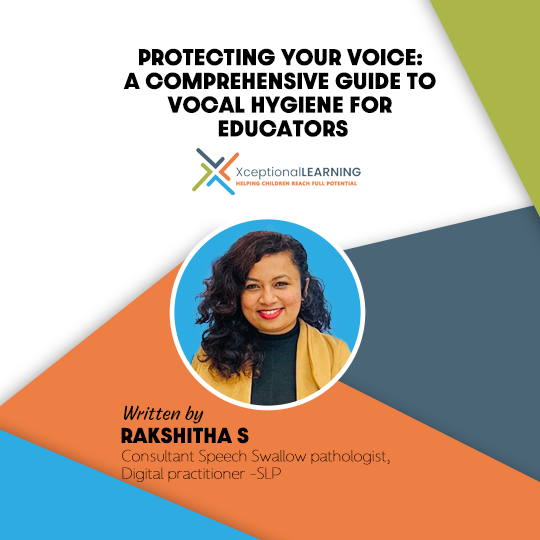Protecting Your Voice: A Comprehensive Guide to Vocal Hygiene for Educators
admin January 1st, 2025

As an educator, your voice is one of your most valuable tools. From delivering lectures to engaging with students, your voice works tirelessly, making vocal care essential to your long-term health and effectiveness as a teacher. Vocal hygiene involves adopting habits and lifestyle changes to maintain vocal health, prevent strain, and avoid injury. This guide outlines key practices to help educators protect and preserve their voices throughout their careers.
Essential Vocal Hygiene Practices
Do’s: Healthy Voice Habits
1. Speak Comfortably
Use a tone and pitch within your natural range to minimize strain on your vocal cords.
Example: Maintain a moderate tone in a quiet classroom.
2. Control Vocal Loudness
Avoid shouting by using aids like microphones or visual cues.
Example: Tap a table or use hand signals instead of raising your voice to get attention.
3. Take Breaks While Speaking
Allow your vocal cords to rest during long speaking sessions.
Example: Incorporate group activities or show a video to pause your vocal use.
4. Minimize Noise in Your Environment
Quiet spaces reduce the need for vocal effort.
Example: Close windows and doors to block external noise during lessons.
5. Avoid Speaking When Unwell
Rest your voice when you’re sick or tired to prevent further strain.
Example: Use written instructions or delegate speaking tasks when needed.
6. Stay Hydrated
Proper hydration keeps your vocal cords lubricated and reduces irritation.
Example: Keep a water bottle handy and drink throughout the day.
Don’ts: What to Avoid
1. Don’t Shout or Scream
Shouting can cause vocal cord trauma, leading to nodules or polyps.
Example: Use a microphone instead of raising your voice in large classrooms.
2. Avoid Continuous Speaking
Prolonged talking without breaks can lead to fatigue and strain.
Example: Incorporate pauses in lessons or engage students in discussions.
3. Don’t Speak Over Noise
Raising your voice in noisy environments increases the strain.
Example: Move to quieter areas or use a microphone during discussions.
4. Avoid Speaking When Fatigued
Resting your voice helps with recovery and prevents further issues.
Example: Delegate tasks to colleagues or use written communication.
5. Limit Caffeine and Alcohol
These dehydrate the vocal cords, compromising lubrication.
Example: Choose water over coffee or alcoholic beverages, especially before teaching.
6. Refrain from Frequent Throat Clearing
Throat clearing irritates vocal cords and can cause inflammation.
Example: Sip water or use swallowing techniques to manage throat discomfort.
Healthy Lifestyle Practices for Vocal Health
1. Proper Food Habits
Eating a balanced diet with essential nutrients like vitamins and minerals supports vocal cord flexibility and strength. Avoid spicy, oily, or fast foods that can trigger acid reflux and irritate the throat.
Example: Choose meals rich in fruits, vegetables, lean proteins, and whole grains.
2. Adequate Sleep
Sleep allows your body, including your vocal cords, to rest and repair. This reduces tension and promotes mental clarity for effective communication.
Example: Establish a consistent sleep routine, aiming for 6–8 hours of quality rest each night.
3. Healthy Lifestyle Choices
Avoid smoking and limit alcohol intake, as both can irritate and dry out the vocal cords. Regular exercise enhances lung capacity and circulation, benefiting vocal health.
Example: Engage in yoga, walking, or swimming to boost cardiovascular health and reduce stress.
When to Seek Professional Help
Persistent or severe voice problems require timely intervention to prevent further complications. Here’s when to consult a specialist:
- Hoarseness lasting more than two weeks
- Pain while speaking that doesn’t improve with rest
- Difficulty projecting your voice or sudden changes in pitch or quality
- Frequent throat clearing or coughing
Healthcare Providers Who Can Help:
Otolaryngologists (ENT Specialists): Diagnose medical conditions affecting the voice, such as nodules or laryngitis, using tools like laryngoscopy.
Speech-language pathologists (SLPs): Provide voice therapy, personalized vocal exercises, and education on maintaining vocal hygiene.
These professionals work collaboratively to create tailored treatment plans that address individual needs and ensure optimal vocal rehabilitation.
Conclusion
As an educator, your voice is a vital asset, deserving care and attention. By implementing these vocal hygiene practices, adopting a healthy lifestyle, and seeking professional help, you can safeguard your voice and ensure a fulfilling teaching career. Prioritizing vocal health enhances your effectiveness in the classroom and supports your overall well-being. Take the first step today toward a healthier, more resilient voice!
At XceptionalLEARNING, we support educators with resources like our Digital Activity Book. Therapy beneficiaries can also benefit from our tailored solutions. Contact us to explore tools that enhance vocal health and overall well-being.

